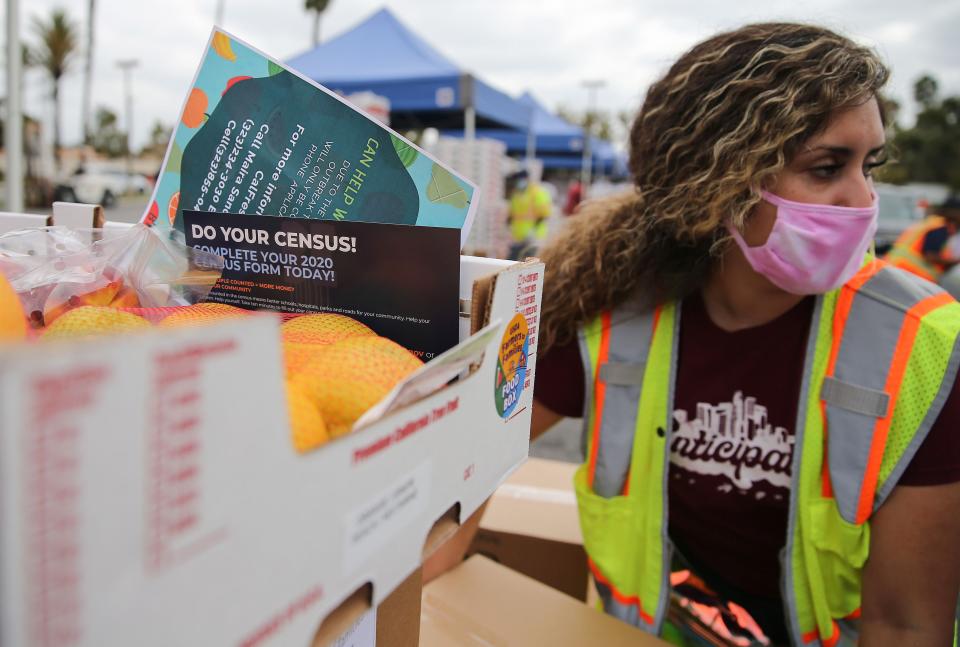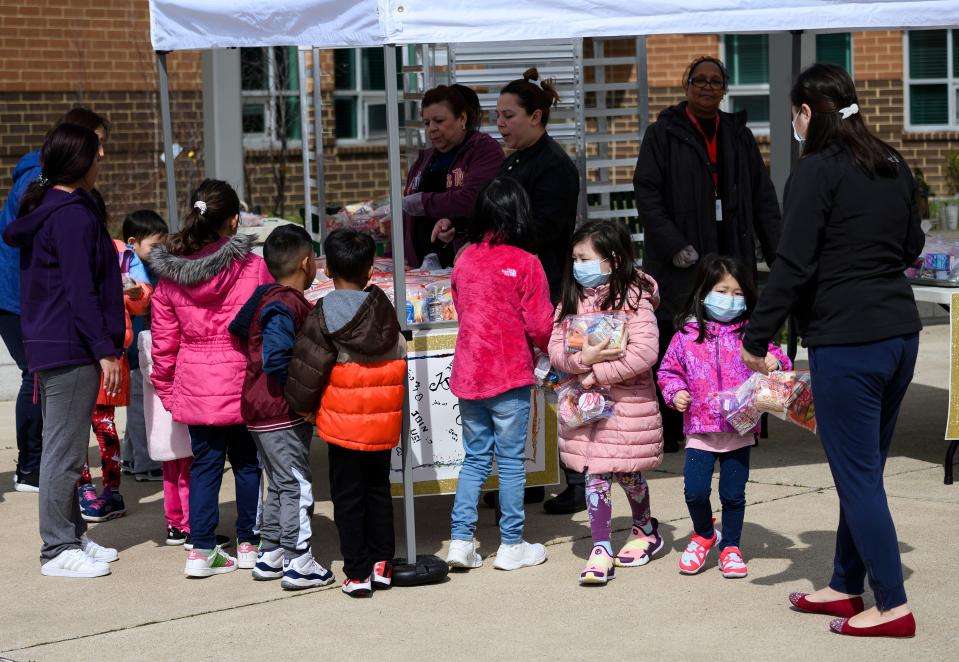Food insecurity is 'growing at an alarming rate' among children, lawmakers warn
Lawmakers from both parties are asking the federal government to intervene on the food insecurity crisis wrought by the coronavirus pandemic that is threatening the health of millions of school children.
“As the COVID-19 crisis continues, the number of food-insecure children is growing at an alarming rate,” the letter signed last week by 14 military veteran members of Congress and sent to the United States Department of Agriculture (USDA), “bringing into reality the long-term dangers of leaving children malnourished.”
The bipartisan letter signed by 10 Democrats and four Republicans asked the USDA to renew waivers for the Summer Food Service Program (SFSP) and the Seamless Summer Option (SSO) and waive the programs’ eligibility requirements for as long as the national emergency declaration of COVID-19.
The renewals would bridge the gap between the end of the summer program and when schools can safely and fully reopen for instruction.

‘School year is just bringing additional concerns for families’
Schools around the country have postponed start dates and instructional methods from in-person to online, or a hybrid arrangement. Without full-time in-person instruction, students who otherwise would have received free or reduced breakfast, lunch, snacks, and sometimes dinner from their districts are now food insecure for up to 15 of the 21 weekly meals.
For Arkansas, New Mexico, Rhode Island, West Virginia, Vermont, Washington, D.C. and Puerto Rico, the USDA extension would mean a lifeline for students and their families as schools in those seven states and territories are under state-ordered closures.
“The start of the school year is just bringing additional concerns for families,” Sari Vatske, executive vice president at Feeding South Florida told Yahoo Money in July, remarking the “uncertainty” about instructional methods for returning to school and how students will receive nutritional benefits.
‘We must act now’

In the absence of jobs, continued government relief, and school-sponsored meals, families around the country are hurting. Since March, food banks around the country have responded to an increased demand — as high as 171% in one city — with no signs of slowing.
“The level of demand we're seeing now is roughly what we'll be seeing through the end of the calendar year is what we're projecting,” Brian Greene, president of the Houston Food Bank told Yahoo Money in July.
One in 4 children are predicted to be food insecure in 2020, according to Feeding America, a nonprofit dedicated to hunger relief, a statistic the lawmakers cited in their letter.
The long-term dangers of malnourished and underfed children translates to poor academic performance and health problems like stunted growth and an increased risk of obesity, chronic illness, asthma, and anemia, extending through adulthood, the lawmakers wrote.
“We must act now,” the letter concludes, “to allow necessary innovations, made possible by these waivers, to our nation’s school and summer meals programs, which will help ensure that our youngest generation is on track for a secure and prosperous future.”
Stephanie is a reporter for Yahoo Money and Cashay, a new personal finance website. Follow her on Twitter @SJAsymkos.
Read more:
'I don't want to die by going back to school': Teachers pen wills before returning to classrooms
Coronavirus puppy scams 'seemed legit,' ensnared dog lovers amid pandemic: Illegal Tender podcast
American tourists face bans and restrictions across the world amid shoddy pandemic response
Follow Yahoo Finance on Twitter, Facebook, Instagram, Flipboard, SmartNews, LinkedIn, YouTube, and reddit.

 money
money 

